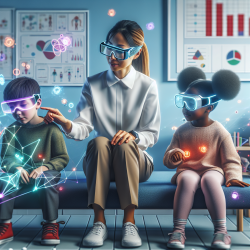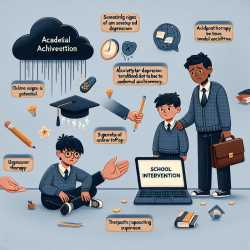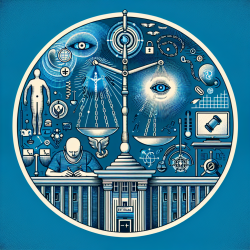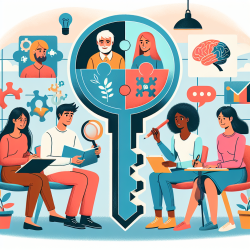Study Overview
The study investigated the use of the Empowered Brain system, which utilizes augmented reality smartglasses to deliver socioemotional and behavioral coaching. The intervention was tested on eight children, adolescents, and young adults with ASD. Results showed significant reductions in ADHD-related symptoms, such as hyperactivity, inattention, and impulsivity, within 24 to 48 hours post-intervention.Key Findings
- Participants showed a 54.9% reduction in ADHD symptoms at 24 hours and a 56.4% reduction at 48 hours in the high ADHD symptom group.
- The low ADHD symptom group exhibited a 20% reduction at 24 hours and a 66.3% reduction at 48 hours.
- All participants tolerated the smartglasses well, with no reported negative effects.
Implications for Practitioners
The findings suggest that digital interventions, specifically smartglasses-based socioemotional coaching, can be an effective tool for reducing ADHD symptoms in children with ASD. Here are some actionable steps practitioners can take:1. Incorporate Smartglasses in Therapy Sessions
Integrating smartglasses into therapy sessions can provide real-time feedback and enhance socioemotional learning. The visual and auditory cues from the smartglasses can help children focus better and improve their attention span.2. Monitor and Measure Outcomes
Use validated scales like the Aberrant Behavioral Checklist (ABC-H) to measure changes in ADHD symptoms pre- and post-intervention. This data-driven approach will help in assessing the effectiveness of the intervention.3. Educate Caregivers
Inform caregivers about the benefits and usage of smartglasses. Encourage them to participate in the intervention sessions to provide additional support and reinforcement at home.4. Advocate for Further Research
While the pilot study shows promising results, larger and controlled studies are needed to validate these findings. Practitioners can advocate for more research and even participate in future studies to contribute to the growing body of evidence.Conclusion
The use of digital smartglasses-based socioemotional coaching shows great promise in reducing ADHD symptoms in children with ASD. By incorporating these tools into therapy sessions, monitoring outcomes, educating caregivers, and advocating for further research, practitioners can significantly enhance their therapeutic strategies and create better outcomes for children.To read the original research paper, please follow this link: Improvement of Attention-Deficit/Hyperactivity Disorder Symptoms in School-Aged Children, Adolescents, and Young Adults With Autism via a Digital Smartglasses-Based Socioemotional Coaching Aid: Short-Term, Uncontrolled Pilot Study.










